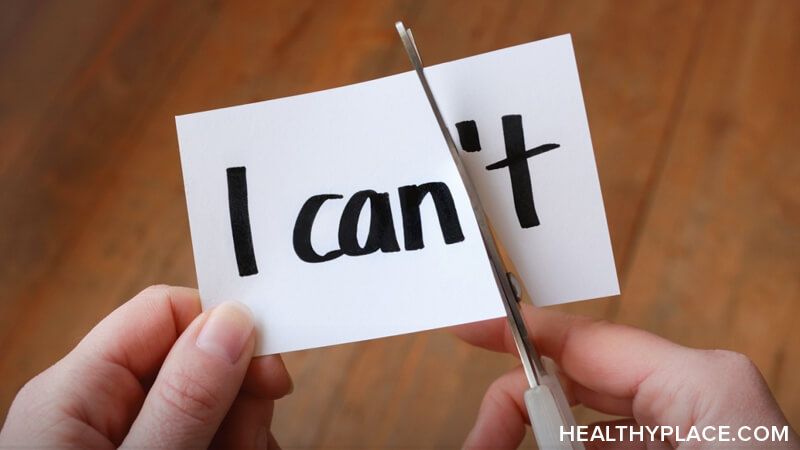How To Improve, Increase Self-Confidence
 Because self-confidence is so important to mental health and wellbeing, it’s common for people to want to know how to increase their self-confidence. Self-confidence is the courage someone has to know himself, believe in himself, and act on those beliefs. Self-confidence is self-respect and positive self-regard. To improve self-confidence is to improve the quality of one’s life.
Because self-confidence is so important to mental health and wellbeing, it’s common for people to want to know how to increase their self-confidence. Self-confidence is the courage someone has to know himself, believe in himself, and act on those beliefs. Self-confidence is self-respect and positive self-regard. To improve self-confidence is to improve the quality of one’s life.
Christopher Peterson (2006) asserts that self-confidence is connected to
- Life satisfaction
- Happiness
- Positive coping skills
- Optimism
- Achievement
- A sense of control over one’s life
Self-confidence is something everyone can, and deserves to, have. It’s natural to feel that your own self-confidence needs a boost. Here, then, are ways to improve and increase your self-confidence.
Self-Efficacy and Success Increase Self-Confidence
Achievement contributes to self-confidence (Gerber, 2003). When someone achieves something meaningful to her, even small things, she feels a sense of accomplishment. This increases her sense of self-efficacy, a component of self-confidence that has to do with the degree to which someone believes she can do something.
Achievements and successes contribute to self-efficacy, and together these increase overall self-confidence. Then, when someone’s self-confidence is improved, she is equipped with greater courage, optimism, and can-do spirit; this, in turn, increases the effort she puts into her tasks, contributing to more success. Experiencing success increases self-confidence, and increasing self-confidence contributes to success in a perpetual upward spiral.
Self-confidence is linked to concepts known as agency and pathways. Agency refers to someone’s determination to achieve her goals. Someone’s belief that they can create the way (the path) to achieve her goals is known as pathways. Experiencing success and possessing agency and pathways improves self-confidence (Peterson, 2006).
It makes sense that experiencing successes contributes to improved self-confidence. However, experiencing success can feel daunting when someone lacks self-confidence. Fortunately, there are things to do to boost self-confidence while you are creating successes in your life.
Improving, Increasing Self-Confidence When You Don’t Think You Can
It’s true. Experiencing success improves self-confidence, and self-confidence leads to successes. How can someone jump into that cycle if he doesn’t feel very confident in himself and his abilities? What if he tries to succeed but fails? What then?
First, relax and ease up the pressure you place on yourself. As much as self-confidence comes from achieving successes in life, it also comes from making mistakes, from being imperfect. Did you know that the more you are aware of your imperfections, the more your self-confidence will increase?
A big source of self-confidence is self-acceptance. Accepting oneself and increasing self-confidence is a process that involves both thoughts and behaviors. Feeling the pressure of perfectionism increases anxiety and decreases self-confidence. It make someone reluctant to set goals and to try to achieve goals they do set; in other words, the quest for perfection decreases someone’s agency and pathways, and it destroys self-confidence.
Self-confidence comes from accepting who you are as a human being, all of your strengths and weaknesses. Some ways to accept yourself and improve self-confidence include:
- Notice your thoughts that chip away at your self-confidence. Consider them. How accurate are they? What evidence can you find that these negative thoughts are wrong?
- Replace the critical thoughts with more realistic and positive ones. Keep doing this until you believe it (this takes time, so be patient with yourself).
- Define your goals, big and small, clearly. Knowing what you want is the first step to succeeding.
- Decide steps for achieving your goals. Every step you reach is an achievement that will improve self-confidence.
- Create positive relationships with others. Reach out to just one person and create a connection.
- Practice assertiveness: expressing yourself while acknowledging someone else improves self-confidence.
- Find role models from your past or present. Whose confidence do you respect and admire? How can you emulate it?
- Allow yourself to make mistakes, and love yourself for them.
- Practice, practice, practice because improving self-confidence is a process rather than an event.
Creating goals, attending to your thoughts, connecting with others for positive experiences, envisioning role models, accepting yourself fully, and practicing these things with patient persistence will improve self-confidence. This will increase successes, which will further increase self-confidence. Self-confidence is something everyone can continue to improve and increase, and with it comes an improved quality of life.
APA Reference
Peterson, T.
(2021, December 24). How To Improve, Increase Self-Confidence, HealthyPlace. Retrieved
on 2026, February 27 from https://www.healthyplace.com/self-help/self-confidence/how-to-improve-increase-self-confidence


